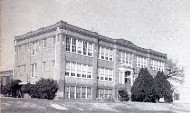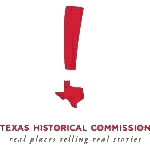Milam County Historical Commission
Milam County, Texas
Milam County, Texas






Edna Westbrook Trigg Honored by Milam Co. 4-H
by Jay Ermis
Temple Daily Telegram - October 10, 2012
CAMERON - The Milam County 4-H paid tribute to the woman who helped shaped rural Milam
County in the early 1900s.
Edna Westbrook Trigg, a native of Milam County, was honored for organizing the first
Tomato Club (Girls 4-H) and became the state’s first home demonstration agent, both in
Milam County in 1912.
An estimated 200 people, including Trigg’s grandson, Dr. Cone Johnson, two of his
daughters, and Trigg’s descendants living in Milam County and outside, attended the
start of the centennial celebration in the Milam County Courthouse where county
Commissioners Court signed proclamations designating Tuesday as the Centennial 4-H and
4-H Proclamation Week Oct. 7-14.
Also honoring Trigg were Dr. Doug Steele, the new Texas A&M AgriLife Extension
director; Chris Boleman, 4-H and youth development program director and associate
professor at A&M; and Dr. Marsha Farney, state representative-elect for District 20,
currently a member of the state board of education, District 10, and a former member of
4-H.
Johnson talked about his grandmother’s early work as the state’s first home
demonstration agent.
They were joined by Vivian Pittman, who filled the county extension agent position
twice, in 1956-1962 and 1971-1983; Jean Thomas, agent in 1983-1990; Chris Holcomb,
agent in 1967-2001; and her sister, Cheryl Walker, who became the current agent in the
county following Holcomb in 2001.
Holcomb, the longest serving agent in the county with 34 years, said when she first
started in 1967, she asked how long she had to stay. She was given an answer of two
years. “This was my only job. We had 1,300 4-H’ers in the county when I left.”
“When I came here the program had about 150 kids in it,” she said. “We had a manual
typewriter, no long distance telephone calls in the office, our 4-H budget was maybe
$200, and I think I had $50 a month travel.
“A lot of people at that time thought 4-H was cooking and cows, livestock and food
projects. Now there are so many different things they teach. It has changed
dramatically over the years. They offer many of the traditional things, but also
different subjects.”
Holcomb said she had been in the county for about 15 years when they had a test project
in the late 1980s to teach kids how to use computers. It was the first one in the
state. “We had so many kids sign up we had to have two sessions. They had to bring in
computers from A&M.”
She said she never left because of having built relationships and working with
youngsters and liking Cameron and its residents.
“I taught some of these adults who have kids in 4-H now,” she said. ‘We’ve had
wonderful support from the parents and leaders. The 4-H program here has always been
good. People see what it has done. It has a good history. It teaches youngsters to be
involved in community service and doing for others. Statistics show us they will be
involved as adults in all aspects of life if they are involved when they are young.”
Johnson said he learned a lot when living with his grandmother in his younger days.
“The 10 years I spent under her roof were the most important days of life,” he said.
“My grandmother would be totally shocked and pleased with today. She was the most
dedicated, professional person I have ever known.”
He said his grandmother became a county agent, then went to A&M where she became
involved in family life services.
Johnson said what stood out the most about his grandmother was her skills as a
sensitive teacher.
“I loved her personality,” he said. “Sometimes she was abrupt. She had to sell herself
first to get people to do better.”
.
All articles from the Temple Daily Telegram are published with the permission of the
Temple Daily Telegram.
All credit for this article goes to
Jay Ermis and the Temple Daily Telegram
Temple Daily Telegram.
All credit for this article goes to
Jay Ermis and the Temple Daily Telegram